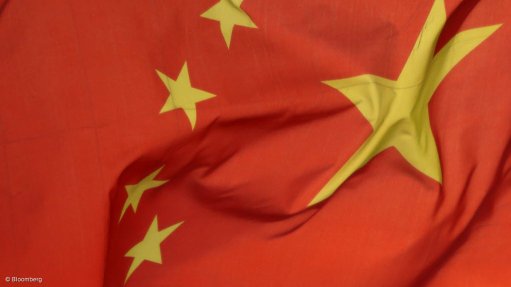Mchunu warns of hardline approach towards nonconforming water-service authorities, municipalities
While the Department of Water and Sanitation (DWS) is offering comprehensive and collaborative support for underperforming water service authorities (WSAs), mayors and municipalities, Water and Sanitation Minister Senzo Mchunu has warned of a hardline approach towards nonconforming entities.
This followed the conclusion of a two-day WSA Summit last month, where clear resolutions and action plans emerged to address the findings and outcomes of the Blue and No Drop reports and Green Drop Progress Assessment report.
The Blue and No Drop Reports, published in December, revealed a decline in drinking water quality and an increase in nonrevenue water (NRW) since the last reports were issued in 2014, while the Green Drop Progress Assessment Report indicated an increased risk in the performance of municipal wastewater treatment systems.
Mchunu called for the sector to “suspend its ego and prioritise professionalism” to improve the performance of the water sector and its services to the public. He said that frank and robust discussions took place among the DWS, several WSA officials, water board heads, the South African Local Government Association (Salga) and the Department of Cooperative Governance and Traditional Affairs (Cogta).
The summit, which focused on finding collaborative and innovative ways to improve critical, poor and average performing WSAs and how to maintain the good standards of the good performing ones, was attended by Cogta Minister Thembi Nkadimeng and Water and Sanitation Deputy Ministers David Mahlobo and Judith Tshabalala, along with provincial and local government representatives, including mayors, MMCs, municipal managers and technical officials of South Africa’s 144 WSAs, besides others.
The summit focused mostly on the quality of water; however, issues surrounding infrastructure, supply and availability, the management of water and skills, were also discussed, and the DWS will be working with Cogta, Salga, the water boards and the private sector to ensure that municipalities deliver on their mandates.
Following extensive discussions, several recommendations were put forward to improve the water sector and enhance water and sanitation services for the public.
“It is all about change. The summit itself was called to change the narrative that we have had so far in South Africa about how we perform in terms of the quality of water that we supply,” said Mchunu.
It was agreed that WSAs should make fundamental changes in the manner that they deliver water and sanitation services to allow for greater accountability and efficiency.
He pointed to a need for the separation of the WSA from water service provision, in accordance with the regulations and legal frameworks, and the DWS is directing municipalities that do not already have separate water service providers to appoint one, establish their own entities or create special-purpose vehicles as water service providers.
“We are saying to them, please go and consider immediately appointing, through legal mechanisms, an alternative [water service] provider,” Mchunu said, noting that the water provider will be subjected to assessments in terms of competencies that will be outlined, which the DWS would be involved in.
“The municipality will remain in authority and will be expected to perform all their duties in accordance with a WSA and in accordance with legislation, but the provision will then allow themselves to be serviced by somebody else. And we expect that to be done as soon as possible,” he said.
Further, to mitigate South Africa’s unacceptably high NRW, which must be addressed simultaneously, Mchunu said that DWS director-general Dr Sean Phillips will establish a multistakeholder technical team, at the national level, with all the key stakeholders to deal with this in collaboration with municipalities that battle the most with NRW.
“It is a matter we have been dealing with for a long time, acknowledging that NRW in South Africa is unacceptably high, especially given the fact that this is already treated water and is treated at a lot of expense. This summit took a decision. Now we must act and bring this to an end.”
“To this effect, we want also to invite the private sector to come in and play a role.”
In addition, there are a number of other things that the DWS and its partners resolved on, including specifics in terms of the qualifications required for the running of the various-sized treatment plants and the filling of posts by a competent person.
“There is a lot of emphasis on performance,” Mchunu said.
Another important area of focus is the review of implementing agents, with an emphasis on capacity building.
Accordingly, the directors-general of the DWS, Cogta, Salga and the provincial and local government will collaborate to strengthen the capacity of implementing agents to enable the water sector to be better equipped to deliver on its mandate and meet the needs of the public.
Mahlobo also announced recommendations and a way forward on finance, security and corruption.
A major recommendation is the strengthening of the budget for water and sanitation services, including reviewing budget allocations to ensure that more funds are allocated towards provision of these services of the public.
He further emphasised the importance of infrastructure security in ensuring uninterrupted water services and urged all municipalities to develop and execute reliable infrastructure security plans, which should include the use of technology such as remote sensing and a rapid response system to combat theft and vandalism of infrastructure.
These measures will not only protect the vital water infrastructure but also ensure a reliable supply of water.
Also announced at the summit was the formation of a multidisciplinary security cluster, comprising Ministers and mayors, which will be responsible for leading intelligence operations and prosecutions against elements that hinder service delivery, including vandalism of water infrastructure.
Comments
Press Office
Announcements
What's On
Subscribe to improve your user experience...
Option 1 (equivalent of R125 a month):
Receive a weekly copy of Creamer Media's Engineering News & Mining Weekly magazine
(print copy for those in South Africa and e-magazine for those outside of South Africa)
Receive daily email newsletters
Access to full search results
Access archive of magazine back copies
Access to Projects in Progress
Access to ONE Research Report of your choice in PDF format
Option 2 (equivalent of R375 a month):
All benefits from Option 1
PLUS
Access to Creamer Media's Research Channel Africa for ALL Research Reports, in PDF format, on various industrial and mining sectors
including Electricity; Water; Energy Transition; Hydrogen; Roads, Rail and Ports; Coal; Gold; Platinum; Battery Metals; etc.
Already a subscriber?
Forgotten your password?
Receive weekly copy of Creamer Media's Engineering News & Mining Weekly magazine (print copy for those in South Africa and e-magazine for those outside of South Africa)
➕
Recieve daily email newsletters
➕
Access to full search results
➕
Access archive of magazine back copies
➕
Access to Projects in Progress
➕
Access to ONE Research Report of your choice in PDF format
RESEARCH CHANNEL AFRICA
R4500 (equivalent of R375 a month)
SUBSCRIBEAll benefits from Option 1
➕
Access to Creamer Media's Research Channel Africa for ALL Research Reports on various industrial and mining sectors, in PDF format, including on:
Electricity
➕
Water
➕
Energy Transition
➕
Hydrogen
➕
Roads, Rail and Ports
➕
Coal
➕
Gold
➕
Platinum
➕
Battery Metals
➕
etc.
Receive all benefits from Option 1 or Option 2 delivered to numerous people at your company
➕
Multiple User names and Passwords for simultaneous log-ins
➕
Intranet integration access to all in your organisation
















